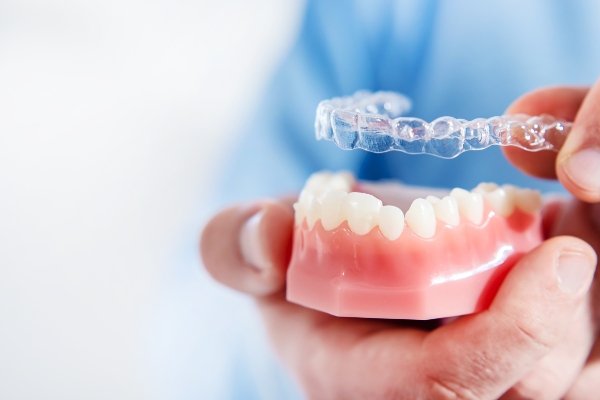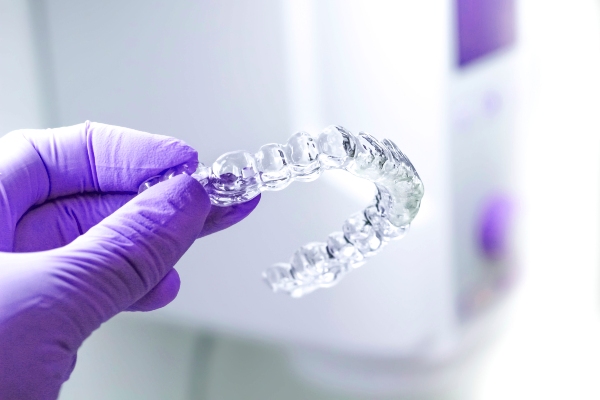 Looking into your bite correction treatment options? Continue reading to learn the answers to five commonly asked questions about bite correction using traditional braces. Improved oral hygiene is only one of the numerous advantages of having a healthy bite and straight teeth.
Looking into your bite correction treatment options? Continue reading to learn the answers to five commonly asked questions about bite correction using traditional braces. Improved oral hygiene is only one of the numerous advantages of having a healthy bite and straight teeth.
5 FAQs about bite correction
Orthodontic treatment helps correct bite problems and realign the jaw. Talking and eating is less of a hassle if the teeth line up properly and the jaw is properly aligned. In addition, it may help protect the teeth from early wear and tear and make brushing and flossing easier.
1. How often will I need to come in for dental visits?
There is no standard number of appointments for bite correction. A visit once a month or once every three months is not out of the question. The number of visits patients may require changes during the course of treatment.
The orthodontist will inspect the braces and the treatment progress at each visit. In addition, the braces will be cleaned, the teeth flossed, and new wires and elastics installed or adjusted at this appointment. However, these consultations usually take about 30 minutes.
2. What is the working mechanism of braces?
Traditional braces use tension to move teeth progressively. The pressure exerted on the teeth and jaw changes the form of the jaw and the location of the teeth over time. The bone that anchors the teeth is actually reshaped during the treatment. This tension is provided by the archwire that attaches to the brackets on each tooth. The orthodontist will modify this wire's pressure at each adjustment session.
3. What are the dietary restrictions during treatment?
For the first few days after getting braces, it is advisable to stick to soft meals. The mouth may feel sensitive and chewing may feel slightly odd. Patients will be able to eat normally soon enough, but they will have to avoid certain foods. Pretzels, chips, almonds, and other crunchy foods should be avoided, as well as chewy sweets, gum, hard candy, and ice. The archwire may be damaged, or a bracket can come loose if these foods get trapped around the braces.
4. How do I handle my oral hygiene during treatment?
Braces are necessary for bite correction, but patients will still need to brush and floss regularly to maintain a healthy mouth. Brushing the teeth is essential since food may become trapped in braces. It is advisable to clean the teeth at least twice a day, after each meal and before sleeping. Flossing helps keep the gums clean and healthy. Keeping regular dental cleaning appointments is also important.
5. How long does bite correction treatment take?
The nature of the problem will determine the length of treatment. Treatment might take anywhere from 12 months to two and a half years in certain circumstances. A rough estimate of how long treatment will take will be provided in advance by the orthodontist.
Ready for a more aligned smile?
You can better prepare for your orthodontic examination if you know the answers to the most commonly asked questions about bite correction treatment. Contact our dental office today to schedule an orthodontic consultation.
Request an appointment or call Precision Orthodontics & Pediatric Dentistry at 703-391-8800 for an appointment in our Reston office.
Recent Posts
Finding the best orthodontist for your family involves more than simply selecting the nearest practice in the Reston area. Orthodontic treatment often spans months or even years, making it essential to choose a provider who can meet both clinical and personal needs. Knowing which questions to ask and information to consider can help ensure that…
Accelerated orthodontic treatment provides a faster alternative to traditional braces, making it a preferred option for many patients seeking quicker results. This method focuses on reducing treatment time without compromising the quality of tooth movement or long-term dental health. Accelerated orthodontic treatment is ideal for individuals seeking efficient yet safe options for correcting alignment issues.Accelerated…
Ceramic braces are a less-noticeable alternative to metal braces. Similar to metal braces, ceramic braces are made up of two main components: wires and brackets. The brackets are glued to each of the patient’s teeth, while the wires connect the brackets on each dental arch. The wires are used to control how much force the…


